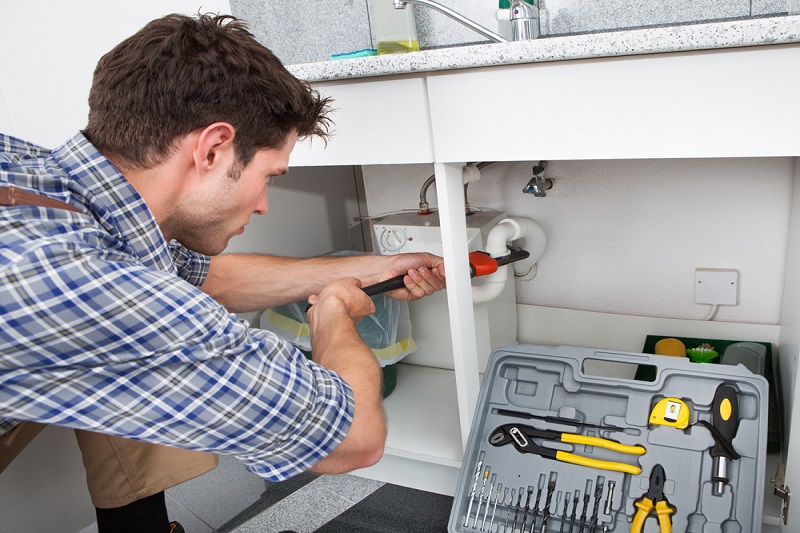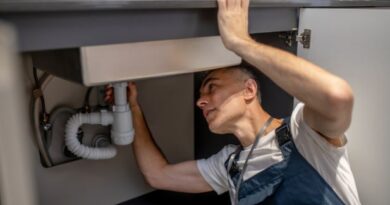Plumber Job Description and Responsibility
A plumber is a professional who installs, repairs, and maintains water and sewage systems in buildings and houses. A plumber is a member of the building management team whose duties include fixing plumbing problems, replacing parts, putting in new fixtures, and performing routine preventive upkeep on the building’s plumbing and other mechanical systems. It is critical to write a detail and specific job description for the plumber position if you want to attract qualify candidates who are a good fit for your organization.
The Plumber’s Job Description
Companies of all sizes and individuals need the services of an experienced plumber who can handle everything from fixing internal and exterior leaks to installing new piping and HVAC units. To success in the Plumber profession, you need a natural affinity for hydraulics and an in-depth knowledge of plumbing. When it comes to plumbing-related tasks, everything they touch turns to gold. There must always be licensed plumbers on staff to ensure the seamless operation of any firm.
Being a plumber involves patience and an understanding of hydraulics, the science of controlling the flow of liquids. Plumbers are detail-oriented, mobile, and creative problem solvers who can handle various residential plumbing issues.
Responsibilities of a plumber
The tasks and obligations area of a job description is the most critical. Here, it would be best if you describe the typical responsibilities of this position, its place in the company, and the name of the person in charge to whom this employee will report.
- Maintain the plumbing in homes and businesses.
- Plumbers require both new building and remodelling projects.
- Get back to the general contractor team’s plumbing calls as soon as possible.
- Cooperate with the Expediter in securing necessary plumbing licenses.
- Follow the latest plumbing codes so that your systems can pass inspection on the first go.
Require Skills for a Plumber
To be eligible for the position of Plumber, one must have certain requirements.
- Finishing a plumbing apprenticeship with a master plumber.
- Familiarity with plumbing tools, materials, and systems.
- Proven track record as a plumber in a high-pressure setting.
- A firm grasp of the state laws that govern plumbing installations and repairs.
- Superior capacity for problem-solving and analysis.
- Excellent attention to detail and care for customers.
- Well-verse in the use of plumbing equipment and supplies.
- Plumbing experience and a current and valid license are require.
- Powerful abilities in verbal exchange and interpersonal relationships.
Education, On-the-Job-Training, and Professional Certification
Most plumbers get their training via an apprenticeship, a kind of vocational training that combines classroom study with paid internship experience. Working independently is illegal without a state-issued license in much of the country.
- Employers and labor unions collaborate to create formalize apprenticeship programs. They are four to five years and include two thousand hours of study and work experience. For most programs, completing high school or its equivalent and 18 years old are an absolute requirement for admission. Your formal education will consist of lectures on regional ordinances, blueprint interpretation, and security precautions.
- As with many other trades, plumbers must get a license before legally practising in most areas. An examination and two to five years of experience is typically required for most licenses.

Criteria needed to become a master plumber.
The requirements to become a master plumber are as follows:
- Reading and understanding schematic drawings and blueprints is a necessary skill.
- Capability to carry out any maintenance work relate to plumbing.
- A fundamental comprehension of plumbing procedures, drainage networks, and heating apparatuses is required.
- The capacity to make reasonable decisions under stressful situations.
- The capability of passing the skills and proficiency exam for Plumber II.
- Proficiency in word processing, spreadsheet applications, and general computer knowledge.
Conclusion
Moreover, being a plumber is a viable option for those interested in working in the building trades. You should get some apprenticeship training and learn new skills as a plumber. You also need to be aware of the most recent plumbing technology and practice developments. Doing so will allow you to adapt quickly to new developments and continue providing excellent support to your clientèle. Hiring a professional plumber for all your plumbing issues is also essential as any major or minor plumbing issue can hamper your daily operations.


